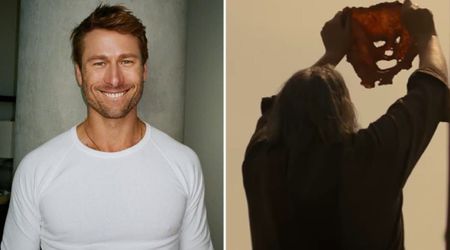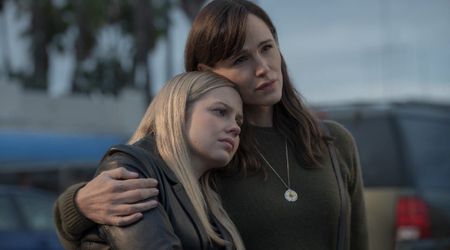'Work In Progress' Episode 4 review: Abby is still being judged for her 'looks' and we are disappointed

This review might contain spoilers, so if you are yet to catch up on the latest episode of 'Work In Progress', we recommend you stop reading right here! And if you know what we know, then read on to discover more.
As we keep moving deeper into the story of Abby, we start to experience her life as ours. Her candor in every instance makes us feel her emotion and lets us forget that she is on the other side of the screen. It’s like watching her in person, day in day out, as someone we have known. That’s the beauty of ‘Work In Progress’. But then such attachment with your character also has its side-effects. We feel what she feels. Her stress, although portrayed in a light and fun package, is stressful nevertheless, especially when you try to put yourself in Abby’s shoes.
We understood her struggles when she decided to do the ‘180’ almonds project (she is still on it). When she hooked up with Chris, we cheered for her, because finding new love is always exciting and in this case, Chris and Abby’s relationship is extremely refreshing in the light of queer romance, so much so, that one would forget the whole ‘sexual orientation’ part and see them as any other couple.
Similarly, in episode 4, when we see Abby still being ‘judged’ by the ‘society’ or so called ‘regular’ people, we cannot help feeling the same stigma. And it is not only because we are attached to our protagonist but also because we are shocked at the regressive nature of people. Sitting on the threshold of 2020, when the world is all set to experience changes, being discriminatory towards alternative sexuality is something we have difficulty accepting. Not that everyone is not entitled to their opinions, just that there is perhaps, certain, socially cordial way to deal with something one doesn’t like. But it cannot be at the cost of putting someone through trauma and so much stress that they start fearing their existence.
Let’s simplify this down a notch.
In the latest episode, Abby takes us through her experiences in public bathrooms. In the first instance, we see her getting a stink eye from a fellow bathroom user. While there is no comment or snide remark to Abby directly, we, like Abby herself, know what that look typically means. Abby’s way of dressing and social image has always bothered people around her. So much so, that they start doubting her identity as a woman. But she never confronted them all her life. She despises their behavior, alright, but never stood up to such behavior. Instead, she started ‘avoiding’ them. She even developed a ‘fear of using public toilets’, lest she gets the ‘looks’ again. She even developed ‘the lady voice’ as she calls it, to avoid conflicts.
To top it all off, we even see a woman complaining to the police about a ‘man’ being in the women’s bathroom. And the police themselves condoned the stigma by making comments like “I can see why she would have said that”. But the point that nails it hard is the ending scene where she is being (yet again) refused to use a woman’s toilet.
Our question to such public reactions is that, after having gone through all the struggles for co-existing in the society, alongside the ‘acceptable’ communities, do the LGBTQ people still have to go through this? In a time where we are talking of taking the human race to its next level of evolution, will we continue to be regressive and judge people on their appearance and determine their sexuality or preferences based on their clothing?
It is indeed disheartening to see that people like Abby are still victims of such judgmental behavior and there is practically no solution to making it any better. The only hope, if there is one, is shows like ‘Work In Progress’ creating awareness and making us connect better with lives of people like her, which otherwise, we would never know.
If you need to address pressing issues and struggles of, within, or for the LGBTQAI community across the United States, seek help and resources at www.180almonds.com.










